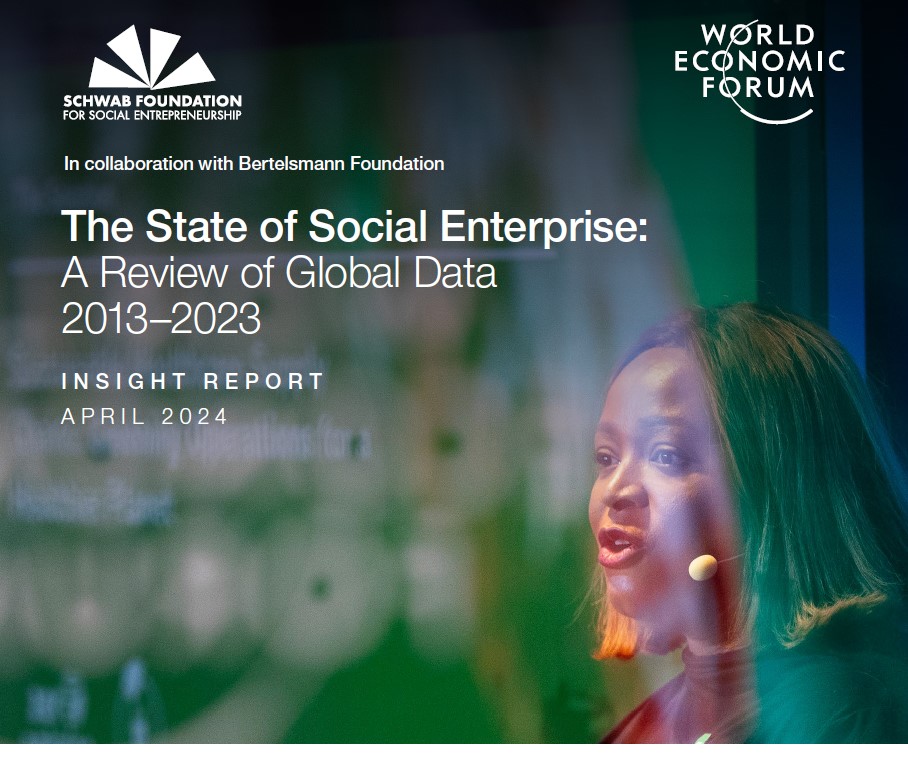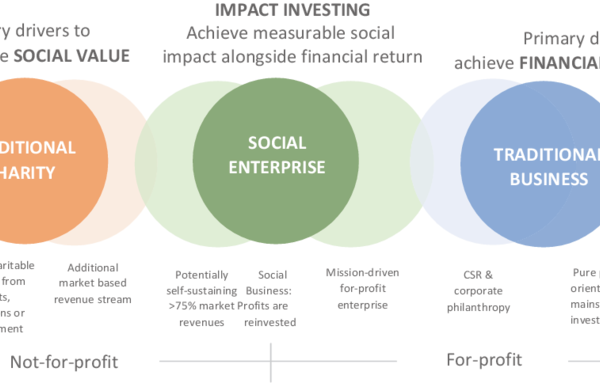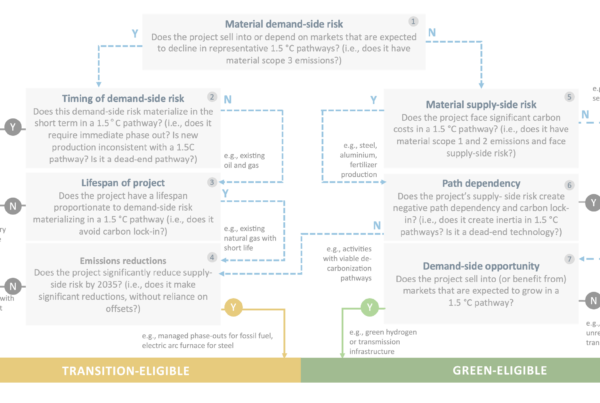Source: World Economic Forum Schwab Foundation for Social Enterprise April 2024 (PDF)
Executive summary
The Global State of Social Enterprise report examines the transformative role that social enterprises play in addressing some of the most pressing global challenges. At a time when the world is grappling with unprecedented social, environmental and economic issues, the scope and scale of social enterprises are underrecognized while their contributions have never been more critical.
Social enterprises stand at the intersection of business and social good, spearheading innovative solutions that not only generate economic value but also drive significant social and environmental impact. Using existing national-level data from more than 80 countries, this report provides stakeholders from policy-makers to investors with a high-level understanding of the sector and its economic and societal footprint. These insights are essential for developing an environment in which social enterprises can thrive, enabling them to augment their impact on communities around the world.
The global data indicates that there are approximately 10 million social enterprises across the world, which means they comprise more than 3% of all businesses. These businesses:
– Are united in their principle of putting purpose before profit
– Generate around $2 trillion in revenue each year
– Create nearly 200 million jobs
– Bridge the gender gap – with one in two social enterprises worldwide led by women, compared
to one in five for conventional enterprises
– While often created to meet local needs, work in widespread geographical areas, from Sweden
to South Africa and Mexico to Malaysia
– Exist in various industries and sectors, from agriculture to information technology (IT) and
healthcare to financial services
– Deliver against all the United Nations Sustainable Development Goals (SDGs), especially those focused on health and education, climate and jobs, thereby reducing poverty and inequality
– Face common barriers such as lack of public awareness, inadequate legal structures and access to finance.
Social enterprise is larger than the $1.79 trillion apparel industry1 and almost twice the size of the $1.01 trillion advertising industry. In addition to uncovering important insights, this study reveals gaps and challenges in social enterprise data. These challenges include the availability and quality of data, the comparability of the available data and the difficulty with quantifying social and environmental value creation. Addressing these challenges will be critical to creating a clearer understanding of the state of social enterprise globally. Strengthening national-level social enterprise data and statistics will also provide better information for governments, businesses and investors to produce enabling conditions for
social enterprises to thrive. Closing these gaps is a collective challenge to be addressed by leading sector organizations, governments, international operations and academics around the world.
There are an estimated 10 million social enterprises globally, generating around $2 trillion in revenue annually and creating nearly 200 million jobs.
Source: World Economic Forum Schwab Foundation for Social Enterprise April 2024 (PDF)



